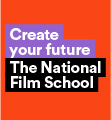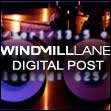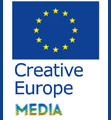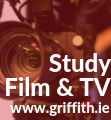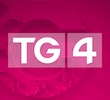Armagh native Seamus McGarvey is one of Ireland’s foremost cinematographers. His latest work on Joe Wright’s ‘Atonement’ has garnered widespread critical acclaim, adding to his catalogue of successes. Here he talks about his craft and offers advice to aspiring cinematographers.
Just back from the Botswana filming ‘The No. 1 Ladies' Detective Agency’ with Anthony Minghella, McGarvey’s other credits as cinematographer include Oliver Stone’s ‘World Trade Centre’; ‘Charlotte's Web’; ‘The Hours’, for which he earned the London Evening Standard British Film Award for Best Technical/Artistic Achievement; and the action-adventure film ‘Sahara’, for which he won the Irish Film and Television Award for Best Cinematography. Other credits include: Stephen Frears’ ‘High Fidelity’; Mike Nichols’ ‘Wit’, Michael Apted’s ‘Enigma’; and Michael Winterbottom’s ‘Butterfly Kiss’.
What inspired you to become a cinematographer?
I started out in stills photography, I had an interest in taking photographs from a fairly early age. When I was 13 I got my first stills camera and I had a little dark room in the house and sort of pursued that interest in a very solitary way.
Things picked up pace after a while, I started getting into Super 8, mostly because of a teacher in school, a man called Declan Forde at the Christian Brothers' School in Armagh. He lent me a Super 8 camera, so the stills photography kind of evolved into moving pictures with his encouragement. I applied then to film school in London because I thought I’d like to pursue it into further education. Luckily I got into the Polytechnic of Central London (now the University of Westminster) and I did a three year course in film and television.
That was hugely enjoyable, being in London unleashed a whole range of creative possibilities. I was influenced by lots of things I didn’t have access to in Armagh where I grew up – cinemas, a panoply of galleries and art institutions, which I was able to get a lot of inspiration from.
What was your first job in the industry?
When I left college, having shot a few things in college and having all the confidence of being a student, I found it very depressing initially when I left, because try as I might I simply couldn’t get a job. I did take a job but it was only obliquely related to cinematography - I became an usher in a cinema, at the ICA. That was amazing actually because I got a chance to see lots of world cinema, it further expanded my horizons. I kept plugging away trying to get other work.
I stayed in London, I lived in London for twelve years. I live in Edinburgh, Scotland now. I just decided to stay on, I kept writing to people trying to get a job, eventually I got a job as a trainee on the film ‘December Bride’, that was one of the first paid jobs that I had. It was a small amount at the time but it was fantastic experience for me because I had all the theory and a little bit of practice at film school, but to actually be on the set of a big budget film was incredible tuition for me. I met and learned a lot from the DOP Bruno De Keyzer and particularly from the focus puller Kenny Byrne and the grip Malcolm Huse principles of photography and also Brendan Galvin the loader. All these people taught me a lot about the nitty gritty and the etiquette of what it’s like to work on a real film set.
Do you think it’s possible for someone to have a successful cinematography career if they stay in Ireland or do you think it’s necessary to go abroad?
I think things are very different now, the industry is expanding and also the possibilities for making films are expanding. The whole industry is becoming more democratic because people have access to cameras for instance. The digital revolution is really letting a lot of untold stories reach a bigger audience. That wasn’t really available when I was starting out because it was a very closed, corralled industry and at that time if you had asked me, twenty years ago I would have said ‘Yes of course you have to get the experience, wherever it is, be it in the UK or the US or wherever,” but now I think that you can get that experience anywhere. The thing is to follow your inspiration, be that clubbing together with friends or scriptwriters. You can make films for a lot less now. The thing that gets people noticed is good ideas and good stories properly produced.
What do you enjoy most about your work?
I’m so privileged to work in the industry, particularly in my job as a cinematographer, it’s really like working in my hobby. I think that whatever job you do, you have to love it in order for that to be reflected in the type and quality of work that you do.
The thing I love most about it, I suppose, is the collaborative nature of my work. When I was a stills photographer, at that stage when I was starting out, I thought I was an artist. I had a couple of solo shows of work and it was a solitary pursuit, but what’s lovely about filmmaking is that people make things with each other and each person, if their open enough to it, can embellish each others work. When all those ideas are filtered through a really good director or a really good team of people it really refines the input in the film and it ultimately makes films more powerful, and particularly from a photographic point of view, your photography is better when you’ve got that myriad of input that are properly refined and made more cohesive.
What qualities, apart form formal training, do you think are important in a cinematographer?
Cinematography, by its very nature, is a technical pursuit, and you really have to know the ins and outs of photography, but those are quite straightforward. Once the principals of photography are learned, the difficulty then, in terms of the quality of the cinematography, is basically forgetting about the technique – not completely because you have to be able to expose the film properly - but to unleash the heart and the brain and to realise that you’re interpreting a script and not just photographing for effect.
The beautiful thing about cinematography is that when you’re making a film it’s a sequence of images that all build up to create this overall feeling. It must have some sense of syntax, and that’s something that I really enjoy doing, reading a script and thinking about how the build up of images produces meaning.
The other thing that’s very important to have is a certain amount of diplomacy and people skills, you can’t be sort of a horned maverick marching through! It’s good to have a strong personal vision, but it has to be achieved while working with other people, you have to bring it all through in a unified way.
Can you describe a typical working day?
Generally, it follows a particular sequence or programme, though every film is different. I just got back from Botswana where I was doing a film for Anthony Minghella called ‘The No.1 Ladies' Detective Agency’. It had quiet difficult working conditions because you’re on the fringes of the Kalahari and it’s very dusty and very hot. It’s not like just driving out to Pinewood or Bray and having the luxury of a studio set. We usually start around six am and finished when the sun sets around six or seven. On this movie we didn’t stop for lunch, we had running lunches. You just have to have this weird switch that keeps you going when you might otherwise want to jump on a plane and go home!
Do you enjoy the travelling aspect of your job?
I love travelling, it’s great though it does have repercussions on relationships with family and friends. I’ve been very lucky in that my family have been able to come with me on films that I’ve shot. They did come come out to Botswana on their summer. You’ve got to be able to tolerate the loneliness and be able to enjoy the company of others that you’re working with, and you’ll spend most of your time living out of a suitcase. The nice thing is that after a film is finished there’s usually a fair bit of downtime where I have more sustained time at home, and that’s something a lot of people don’t have.
Do most cinematographers work freelance?
Most people who work on features work freelance, except for ones in TV, but even they are mostly freelance these days.
You always have to go looking for the work, I’ve got an agent but they don’t go looking for work for you, they just negotiate for you. Sometimes people reach a certain stage in their careers where people come looking for them. I don’t want to paint too bleak a picture of the industry, but you have to be persistent!!
When I was starting out I got offered a lot of no and low budget films to shoot, you have to know that you should take those because some of those films were things that other directors saw. I got my first feature because of a short Michael Winterbottom saw and liked. Every creative project is worthwhile. He thought ‘This guy has an interesting eye I’ll give him a shot at this. He also needed a very cheap camera man.’
What cinematographer’s work do you admire?
So many, I love Jack Cardiff, the English cinematographer. Chris Doyle, used to shoot a lot of Wong Kar Wai films. I like Darius Khondji, Roger Deakins. Irish ones - Brendan Galvin, Seamus Deasy, his work I greatly admire. It’s amazing there are some great cameramen coming out of Ireland. Robbie Ryan is one of my favourite Irish cameramen, his work has got an adventurous and experimental energy that I really admire.
What advice would you give to someone starting out as a cinematographer?
Firstly, when you’ve been at college, although we all want to get a career going, the important thing is using your eyes and brain and do things that inspire you and to keep being inspired by light and photography and images, ultimately that will evolve and flourish in your work, because if you simply use all your energy trying to kick start a career without thinking about the art then you may be successful but it won’t have a spark. There are lots of people who can do the job, but there are fewer people who can bring something special to it. It’s instinctive, a lot of the time, but it’s also something that you can hone and develop through looking and thinking.
Filmography (As Cinematographer)
The No. 1 Ladies Detective Agency (2008)
Atonement (2007)
Destricted (2006)
World Trade Centre (2006)
Charlotte ’s Web (2006)
Sahara (2005)
Along Came Polly (2004)
The Actors (2003)
The Hours (2002)
Enigma (2001)
Wit (2001)
High Fidelity (2000)
The Big Tease (1999)
A Map Of The World (1999)
I Could Read The Sky (1999)
The War Zone (1999)
The End (1998)
The Slab Boys (1997)
The Winter Guest (1997)
Jump The Gun (1997)
Harald (1997)
Flying Saucer Rock N’ Roll (1997)
Magic Moments (1997)
Butterfly Kiss (1995)
Look Me In The Eye (1995)
Skin Tight (1994)
A Sort Of Homecoming (1994)




